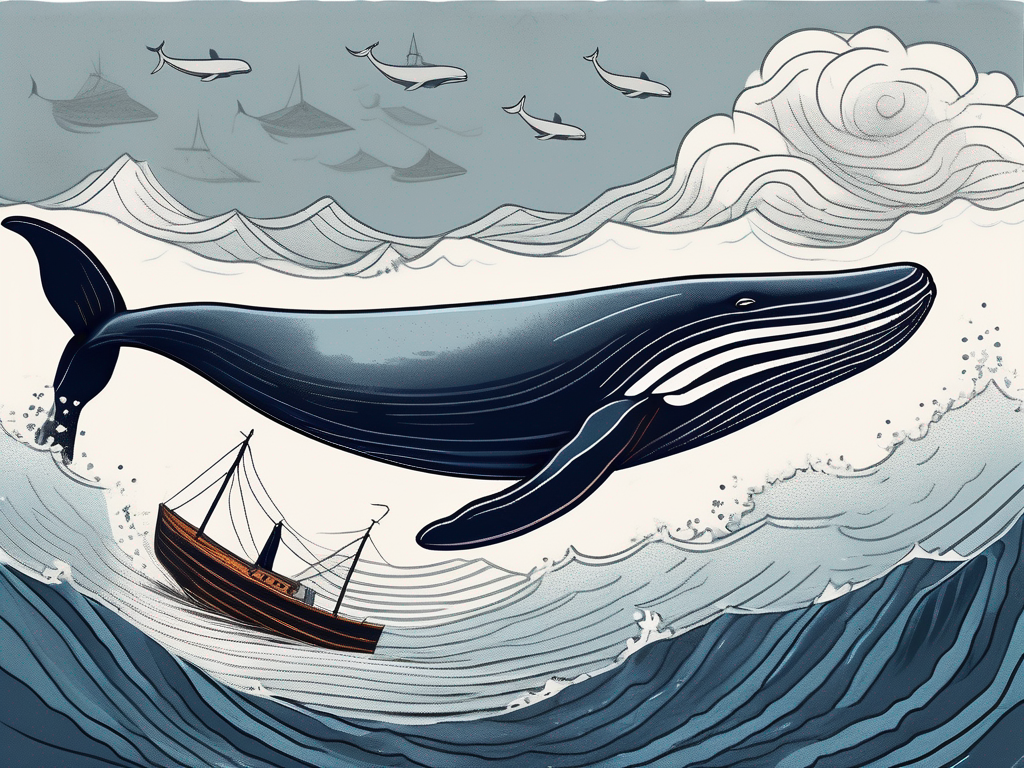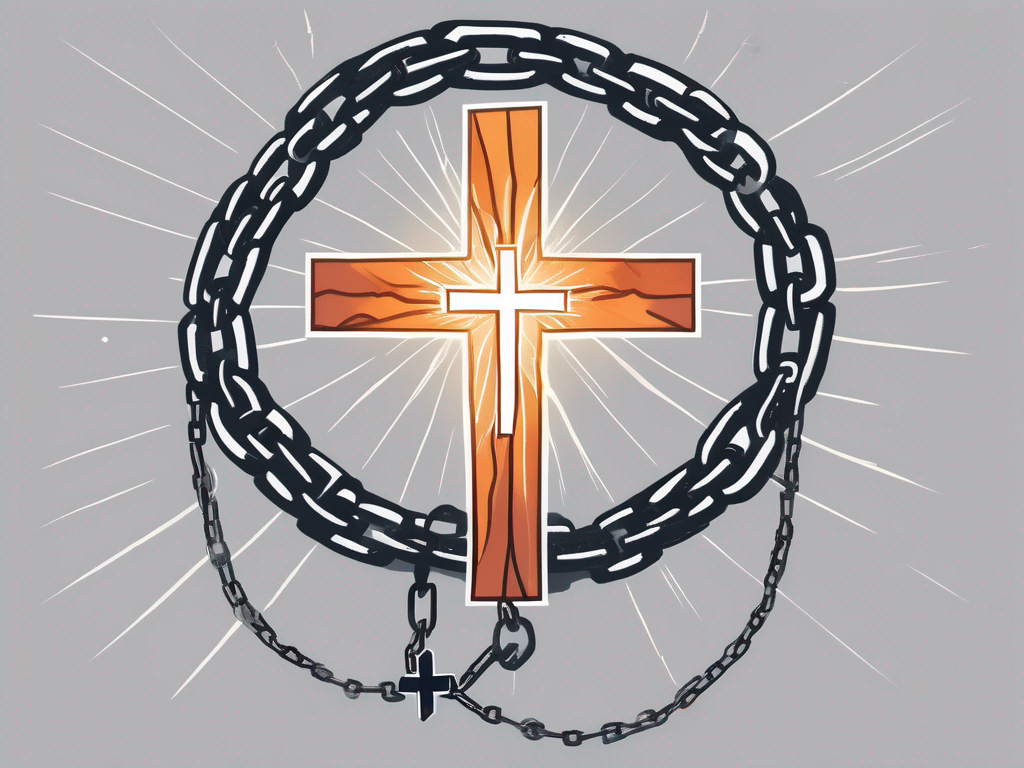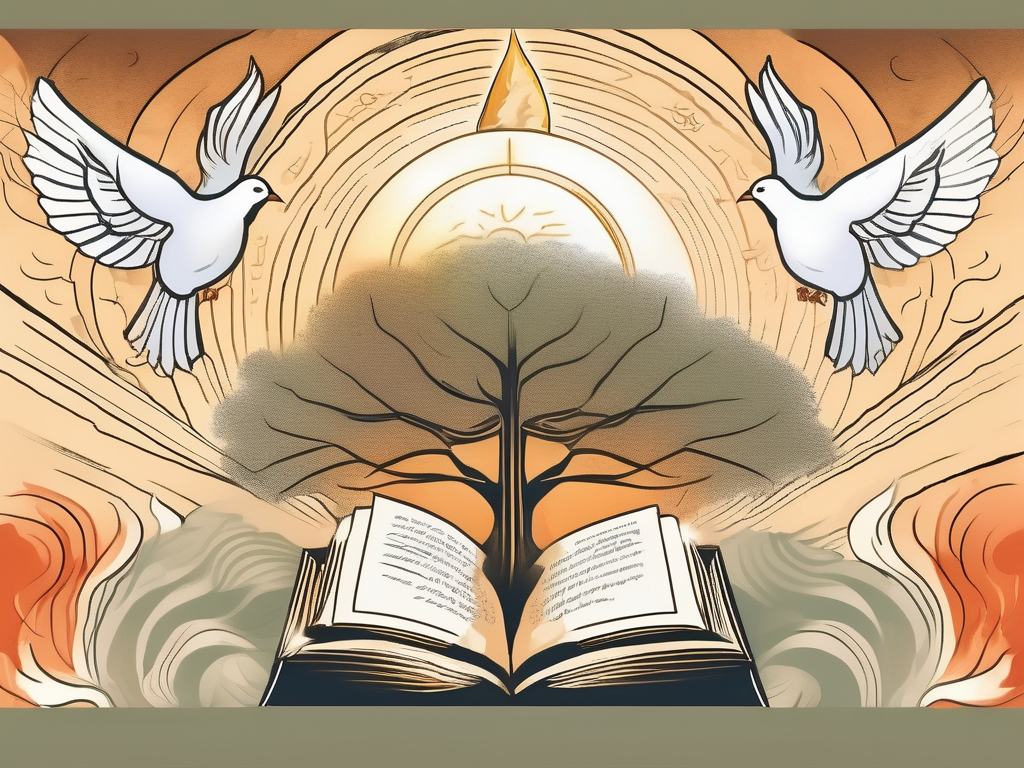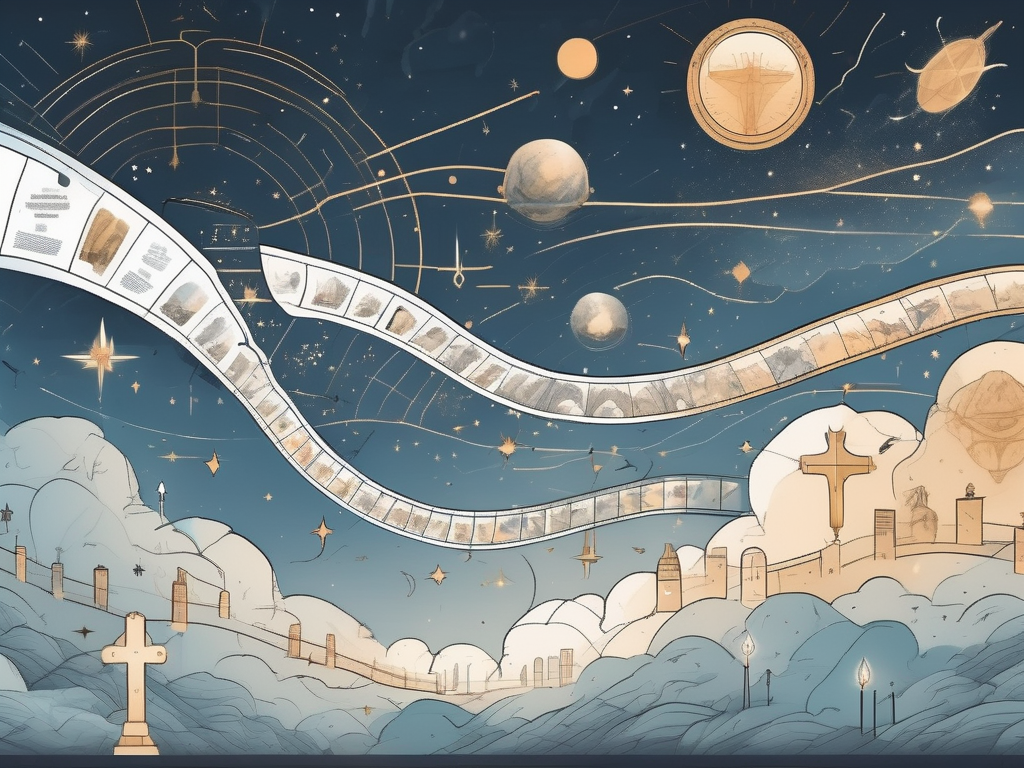Jonah the Prophet is one of the most fascinating figures in biblical history. His story is filled with twists and turns, showcasing the complexities of faith and the human experience. In this article, we will delve into the various aspects of Jonah’s life and his significant role in shaping religious traditions.
Understanding the Role of Jonah in the Bible
Jonah’s mission and his encounter with the city of Nineveh hold crucial importance in the biblical narrative. Despite his initial reluctance, Jonah was tasked with delivering a message of repentance to the people of Nineveh. This mission painted a vivid picture of God’s mercy and the power of redemption. The tale not only sheds light on Jonah’s journey but also provides valuable lessons about second chances and the transformative power of faith.
Jonah’s Mission and the City of Nineveh
The city of Nineveh was known for its wickedness, but God chose Jonah as a vessel of change. His mission was to warn the people of Nineveh about their imminent destruction if they didn’t turn from their evil ways. Although reluctant, Jonah courageously embarked on this divine task, realizing that he carried a message that could save an entire city from ruin.
As Jonah entered the city, he was met with a bustling and chaotic scene. The streets were filled with merchants selling their wares, children playing and laughing, and people going about their daily lives. However, beneath the surface, there was an undercurrent of darkness and sin that threatened to consume the city.
Jonah walked through the crowded streets, his heart heavy with the weight of his message. He spoke to anyone who would listen, urging them to repent and turn to God. Some scoffed at his words, dismissing him as a madman. Others listened intently, their eyes filled with fear and uncertainty.
Day after day, Jonah continued his mission, tirelessly proclaiming the impending doom that awaited Nineveh if they did not change their ways. His voice echoed through the city, reaching the ears of both the rich and the poor, the young and the old.
Gradually, word of Jonah’s message spread like wildfire. People began to gather in the town square, eager to hear what this prophet had to say. The once bustling streets transformed into a sea of faces, all searching for hope and redemption.
Jonah’s words struck a chord with the people of Nineveh. They saw the truth in his message and recognized the need for change. Slowly but surely, a wave of repentance swept through the city, as individuals and families turned away from their sinful ways and sought forgiveness.
The transformation was remarkable. The once wicked city of Nineveh became a beacon of righteousness and hope. The people embraced a new way of life, guided by the principles of love, compassion, and justice.
The Significance of Jonah’s Disobedience
Despite his initial obedience, Jonah’s journey took an unexpected turn when he tried to flee from God’s command. He boarded a ship heading in the opposite direction, hoping to escape his responsibilities. However, facing a fierce storm, Jonah understood the consequences of his actions. His disobedience not only led to personal turmoil but also highlighted the importance of following God’s will.
As the storm raged on, the ship was tossed and turned by the powerful waves. The crew, fearing for their lives, desperately sought a solution. Jonah, realizing that he was the cause of their misfortune, confessed his disobedience and urged them to throw him overboard.
Reluctantly, the crew followed Jonah’s instructions, casting him into the raging sea. As Jonah sank into the depths, he felt a mix of fear and regret. He had chosen to run from his divine mission, and now he faced the consequences of his actions.
But just as Jonah thought all hope was lost, a great fish appeared and swallowed him whole. Inside the belly of the fish, Jonah was given a chance to reflect on his disobedience and seek forgiveness. It was a dark and lonely place, but it also became a sanctuary of introspection and repentance.
Days turned into nights, and Jonah’s prayers filled the belly of the fish. He pleaded for forgiveness and vowed to fulfill his mission. In his solitude, Jonah found solace in the presence of God, who heard his cries and answered his prayers.
The Symbolism of the Great Fish
One of the most iconic aspects of Jonah’s story is his encounter with a great fish that swallowed him whole. While at first glance, this event may seem fantastical, it carries profound symbolism. The belly of the fish became Jonah’s place of introspection and repentance. It serves as a reminder that even in the depths of despair, there is always hope for redemption and transformation.
Inside the belly of the fish, Jonah experienced a profound sense of isolation and darkness. The walls closed in on him, and the stench of decay filled the air. Yet, amidst the despair, Jonah found a glimmer of hope. He realized that his disobedience had brought him to this point, but it was also an opportunity for growth and change.
As Jonah prayed and sought forgiveness, he felt a shift within him. The darkness began to recede, and a sense of peace washed over him. He understood that this was a second chance, a moment to embrace his calling and fulfill his mission.
After three days and three nights, the fish spat Jonah out onto dry land. He emerged from the belly of the fish, a changed man. Jonah’s encounter with the great fish symbolizes the transformative power of repentance and the boundless mercy of God.
From that moment on, Jonah embraced his mission wholeheartedly. He returned to Nineveh, delivering the message of repentance with renewed fervor. The people, having witnessed the miraculous survival of Jonah, listened to his words with even greater conviction. And once again, the city of Nineveh experienced a wave of repentance and transformation.
The story of Jonah serves as a timeless reminder of the power of redemption and the importance of following God’s will. It teaches us that no matter how far we may stray, there is always a path back to righteousness and forgiveness.
Analyzing Jonah’s Character
Beyond his mission and adventures, Jonah’s character provides insight into the complexities of human nature. He embodies both the flaws and virtues often found within individuals, making his story relatable to readers of all backgrounds.
Jonah’s Reluctance and Redemption
Jonah’s initial reluctance to fulfill his prophetic duty highlights his human nature. Like many of us, he questioned his ability to carry out such a monumental task. However, his journey ultimately leads to redemption and a deeper understanding of God’s boundless mercy.
The Human Side of Jonah
What sets Jonah apart from other biblical figures is his relatability. He experiences fear, doubt, and frustration, offering readers a glimpse into the human struggle with faith. Jonah’s story reminds us that even the righteous can find themselves faced with internal conflicts and uncertainties, ultimately prompting introspection and growth.
Theological Perspectives on Jonah
Jonah’s story has been subject to various theological interpretations, reflecting the multifaceted nature of religious discourse.
Jonah and the Concept of Mercy
Central to Jonah’s mission is the concept of mercy. His story emphasizes God’s willingness to forgive and give second chances. Jonah’s journey encourages believers to extend compassion and understanding, mirroring the divine mercy demonstrated throughout his narrative.
The Prophet’s Role in Prophecy Fulfillment
Jonah, like other biblical prophets, played an integral role in fulfilling prophecies and conveying God’s messages to humanity. His story highlights the significance of divine revelation and the role prophets play in guiding individuals and communities towards spiritual growth.
Jonah’s Influence on Later Religious Texts and Traditions
Jonah’s story resonates beyond the pages of the Bible, leaving a lasting impact on religious texts and traditions.
Jonah in Christianity
In Christianity, Jonah’s ordeal serves as a parallel to Jesus’ death and resurrection. Just as Jonah spent three days in the belly of the fish, Jesus spent three days in the tomb before his resurrection. This parallelism emphasizes the themes of sacrifice, redemption, and the triumph of God’s will over human frailty.
Jonah in Islam
In Islamic tradition, Jonah, known as Yunus, is esteemed as a prophet. His narrative aligns with the concepts of prophethood, divine mercy, and repentance promoted within the Quran. The story of Yunus serves as a reminder of the importance of steadfastness in faith and the need for believers to seek forgiveness.
The Enduring Legacy of Jonah the Prophet
Jonah’s story continues to inspire people across the globe, resonating with contemporary audiences and shaping modern faith practices.
Modern Interpretations of Jonah’s Story
Today, Jonah’s story is interpreted and reimagined in various artistic mediums, including literature, film, and music. These modern interpretations continue to captivate audiences, offering new perspectives on the themes of faith, redemption, and second chances.
Jonah’s Impact on Contemporary Faith Practices
The lessons derived from Jonah’s story remain relevant in today’s society. They encourage individuals to reflect on their own lives, seek forgiveness, and embrace the transformative power of faith. Jonah’s enduring legacy serves as a reminder that even in times of uncertainty, there is always hope for redemption and renewal.
In conclusion, Jonah the Prophet holds a significant place in biblical history. His story serves as both a cautionary tale and an inspiring example of faith, redemption, and the boundless mercy of God. From his mission to the city of Nineveh to his influence on later religious traditions, Jonah’s enduring legacy continues to resonate with readers from all walks of life. As we reflect on his journey, let us be reminded of the importance of second chances, the need for self-reflection, and the transformative power of faith.












